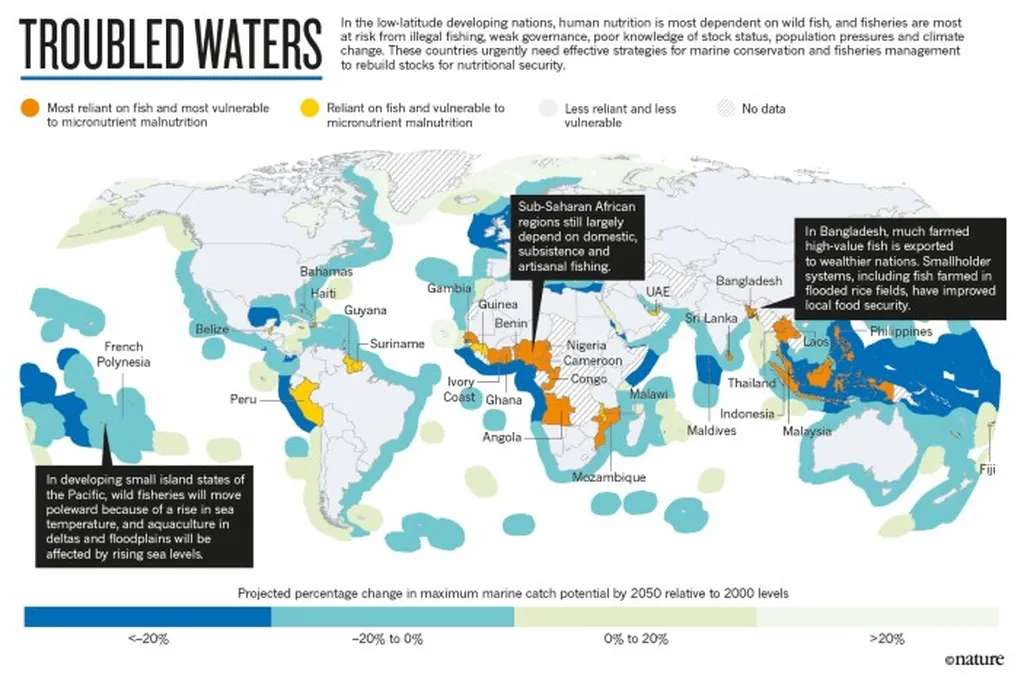In the bustling markets of Benin, a silent competition unfolds between locally sourced brackish water fish and imported marine fish, a rivalry not of price or availability, but of nutritional value. A recent study, led by Martinien Hospice Mahussi Assogba from the Laboratory of Animal Biotechnology and Meat Technology at the University of Abomey-Calavi, has shed light on the fatty acid profiles and lipid quality indices of these fish, with implications that could reshape dietary habits and food policies in the region.
The study, published in the ‘Journal of Food Innovation, Nutrition, and Environmental Sciences’ (translated as ‘Journal of Food Innovation, Nutrition, and Environmental Sciences’), compared the fatty acid composition of two locally harvested brackish water fish, Coptodon guineensis and Sarotherodon melanotheron, with two imported marine fish, Scomber scombrus (Atlantic mackerel) and Trachurus trachurus (Horse mackerel). The findings reveal a complex interplay of nutrients that could influence consumer choices and commercial strategies.
Assogba and his team found that while palmitic and oleic acids were the most abundant saturated and monounsaturated fatty acids respectively, the differences lay in the polyunsaturated fatty acids (PUFAs). “Marine fish contained significantly higher levels of oleic acid,” Assogba noted, “but our brackish fish had higher levels of arachidonic and linoleic acids, which are essential n-6 PUFAs.” This discovery could sway consumers seeking specific health benefits, as n-6 PUFAs play a crucial role in brain function and normal growth and development.
However, the study also raised concerns about the cardiovascular health impacts of consuming certain fish. The atherogenic index (AI), a measure of the ratio of atherogenic to anti-atherogenic fatty acids, was highest in S. scombrus. “This suggests potential cardiovascular risks with frequent consumption,” Assogba warned, highlighting the need for balanced dietary choices.
The findings also underscore the importance of local fish in the diet. Alpha-linolenic acid (ALA), an essential omega-3 fatty acid, was only detectable in brackish fish. While marine fish had higher levels of eicosapentaenoic acid (EPA), their docosahexaenoic acid (DHA) levels were similar to those in brackish fish. This balance of nutrients could make locally sourced fish a viable alternative to imported ones, boosting local fisheries and reducing dependence on imports.
The commercial implications are significant. As consumers become more health-conscious, they may prefer fish with lower atherogenic indices, potentially increasing demand for locally sourced brackish water fish. This shift could benefit local fishermen and the broader economy, creating a more sustainable and self-sufficient food system.
Moreover, the study’s findings could influence food policies and dietary guidelines in Benin. By highlighting the nutritional distinctions between locally sourced and imported fish, the research provides a scientific basis for promoting local fish consumption and supporting the local fishing industry.
As the world grapples with food security and sustainability challenges, studies like Assogba’s offer valuable insights. They remind us that the choices we make at the dinner table have far-reaching implications, shaping not just our health but also the health of our economies and ecosystems. In the words of Assogba, “This research is a stepping stone towards a more informed and balanced approach to fish consumption in Benin and beyond.”

